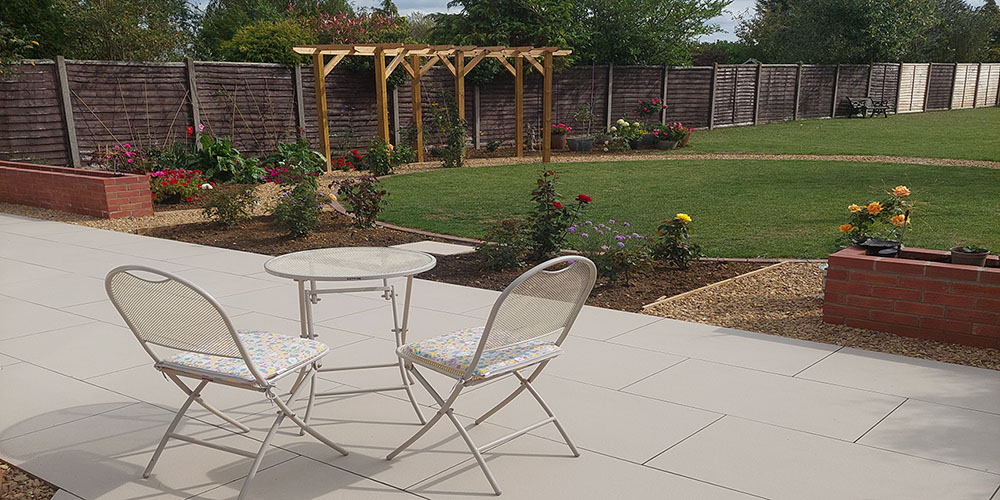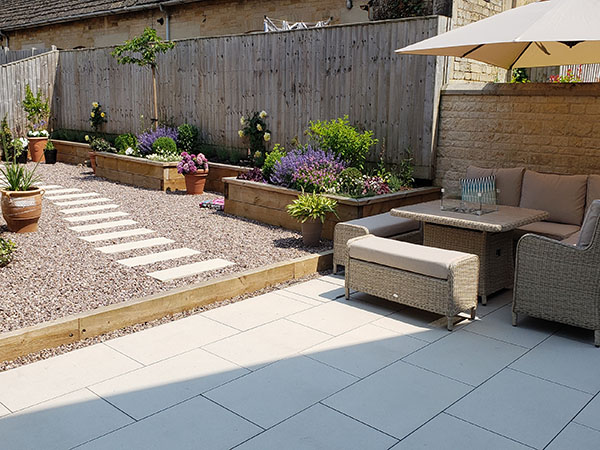A Beginners Guide To Porcelain Patios
The popularity of porcelain tiles for outdoor patios is on the rise due to their durability, low maintenance, and aesthetic appeal.

Advantages:
Porcelain pavers offer a resilient patio surface suitable for various garden styles. Porcelain, a type of ceramic fired at high temperatures, results in a dense and hard material.
Porcelain paving boasts low porosity, requiring minimal maintenance without the need for sealing.
The material is available in a range of colours and finishes, with uniform slab sizes for a contemporary look.
Most porcelain pavers feature a non-slip surface, ensuring safety even in wet conditions.

Disadvantages:
Porcelain paving tends to be more expensive than natural stone alternatives. Installation can be challenging due to the material's lack of porosity, requiring professional expertise.
The increasing popularity has led to a flooded market, potentially compromising installation quality.
Some may find the appearance of porcelain tiles too artificial compared to natural stone options. To mitigate a clinical look, experts recommend balancing porcelain paving with ample greenery.
Installation Tips:
Meticulous measurement is crucial due to the difficulty of cutting porcelain tiles. Attention to detail during base preparation is essential for even installation.
Consider using a concrete slab or slurry adhesive for optimal bonding.
Special care is needed for steps, as porcelain tiles typically come in standard thicknesses.

Maintenance:
Porcelain tiles are easy to clean with a power washer, requiring minimal effort.
Both the tiles and grout can withstand power washing, unlike conventional joints. For stubborn stains, proprietary cleaners are recommended. Periodic grout maintenance may be necessary every few years.
Overall, porcelain tiles offer a durable and attractive option for outdoor patios, provided proper installation and maintenance are observed.